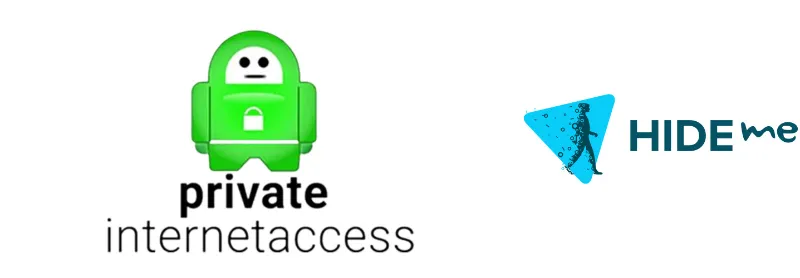Choosing the right communication channel is a key decision in the journey of establishing your business.
When it comes to mobile messaging, two of the most prominent platforms are SMS and WhatsApp for Business.
Both of these platforms have unique advantages that can boost your customer engagement and overall business communication.
In this blog post, we’ll delve into what these platforms offer, their advantages and disadvantages, their costs, and how they handle customer engagement.
By the end, you’ll be well-equipped to decide whether to use SMS or WhatsApp for business.
Quick Answer: Choosing between SMS and WhatsApp for Business
Deciding between SMS and WhatsApp for business ultimately comes down to your specific business needs and target audience.
If you’re targeting a global audience heavily reliant on internet access, WhatsApp for Business might be the better choice. It offers advanced features like group chats, media sharing, and end-to-end encryption.
On the other hand, if you need a reliable communication channel with a broad reach, and doesn’t require internet access, SMS for Business might be the ideal choice.
It’s particularly effective in regions where internet connectivity is challenging or for audiences less accustomed to internet-based apps.
Understanding SMS for Business
What is SMS for Business?
SMS for Business, also known as Business SMS or Text Message Marketing, is a method of communicating with customers and potential clients through text messages.
These messages can include anything from promotional offers and alerts to appointment reminders and customer service updates.
Advantages of SMS for Business
- Broad Reach: SMS doesn’t require internet access, which makes it a viable option for reaching customers who might not have consistent internet connectivity.
- High Open Rates: Given the directness of SMS, it’s reported that over 90% of text messages are opened and read within the first three minutes.
- Flexibility: SMS can be used for various purposes, including marketing promotions, reminders, alerts, and customer service.
Disadvantages of SMS for Business
- Limited Features: Unlike WhatsApp, SMS is primarily text-based. Businesses can’t send multimedia content like images, videos, or documents through SMS.
- Cost Considerations: Depending on your location and the scope of your operations, sending SMS messages can be more expensive than using internet-based platforms like WhatsApp.
- Regulatory Restrictions: In many regions, strict regulations govern the use of SMS for business purposes, which businesses must adhere to.
Exploring WhatsApp for Business
What is WhatsApp for Business?
WhatsApp for Business is a free-to-download app built specifically for small and medium businesses.
It’s designed to help businesses interact with their customers more efficiently, with features like quick replies, label organization, and automated messaging.
For larger companies, WhatsApp offers an API solution that allows them to connect the platform with their existing customer service infrastructure.
Advantages of WhatsApp for Business
- Media Sharing: Unlike SMS, WhatsApp allows businesses to send images, videos, documents, and even voice messages. This opens up a multitude of possibilities for creative marketing and customer service.
- Global Reach: With over 2 billion users globally, WhatsApp can help businesses tap into a massive, global user base.
- End-to-End Encryption: All WhatsApp messages are end-to-end encrypted, ensuring the security and privacy of your business communication.
Disadvantages of WhatsApp for Business
- Internet Dependent: Unlike SMS, WhatsApp requires an internet connection to function. This can be limiting in areas with poor or inconsistent internet access.
- Less Direct: While WhatsApp does boast a large user base, there’s no guarantee that your message will be seen immediately. It’s dependent on when users check their app, whereas an SMS pops up directly on the phone’s screen.
- Setup Complexity: Setting up WhatsApp for Business, especially the API solution, can be more complex than SMS.
Direct Comparison: SMS vs. WhatsApp for Business
When comparing SMS and WhatsApp for Business, several factors come into play. Let’s break them down:
Cost
While both SMS and WhatsApp involve costs, they occur in different areas. With SMS, you’re typically paying per message sent, especially for international messages.
The costs can add up, particularly for larger businesses.
On the other hand, WhatsApp is a free platform, but it does require an internet connection, which may be a cost factor for some users.
Plus, if you’re integrating with the WhatsApp Business API, there may be additional costs associated.
Features
In terms of features, WhatsApp for Business has the upper hand. It allows for sending not just text messages but also photos, videos, documents, and voice messages.
Additionally, it provides business profiles, automated responses, and catalog features.
While limited to text, SMS offers the advantage of directness and high open rates. It’s a reliable way of ensuring your message reaches the customer, as long as they have a mobile network signal.
Reach
Both platforms have the potential for broad reach. SMS can reach any mobile phone, regardless of the model or internet connectivity.
WhatsApp, however, has a vast global user base of over 2 billion people.
Integration
WhatsApp for Business, especially with its API, can be integrated into other business systems like your CRM or customer service tools.
This could be a significant advantage for businesses looking to streamline their customer communications.
While less sophisticated, SMS can also be integrated into various marketing platforms. However, it might not offer the same level of functionality as WhatsApp.
Frequently Asked Questions (FAQ)
Q1. What is the difference between SMS and WhatsApp for Business?
The main difference between SMS and WhatsApp for Business is the platform they operate on. SMS, or Short Message Service, is a text messaging service that operates without an internet connection, allowing messages to be sent directly to a mobile phone number.
On the other hand, WhatsApp for Business is an internet-based service that requires the user and the receiver to have the app installed on their devices.
Q2. Why do people use WhatsApp instead of SMS?
Many people use WhatsApp instead of SMS because it allows for richer communication. You can send images, videos, documents, and even phone calls.
Additionally, it can be more cost-effective, especially for international communication.
Q3. Should a business use WhatsApp?
A business could benefit from using WhatsApp, particularly if it has an international customer base. With over 2 billion users, it offers a large potential audience.
Features like automated responses and business profiles can enhance customer interaction. However, it’s essential to consider the nature of your business and your customers’ preferences.
Q4. SMS or WhatsApp for business?
Choosing between SMS or WhatsApp for business depends on your business’s specific needs and circumstances.
Consider your target audience’s demographics, preferences, your operational region’s internet connectivity, and the nature of the messages you wish to send.
Conclusion
Choosing between SMS and WhatsApp for Business is a significant decision that can impact your business communication strategy.
Each has its strengths and weaknesses, and the choice ultimately depends on your business needs and the preferences of your target audience.
Remember that you aren’t necessarily restricted to one or the other. Many businesses successfully use a mix of both to communicate with their customers effectively.
The key is to understand the nuances of each platform and use them strategically to your advantage.









